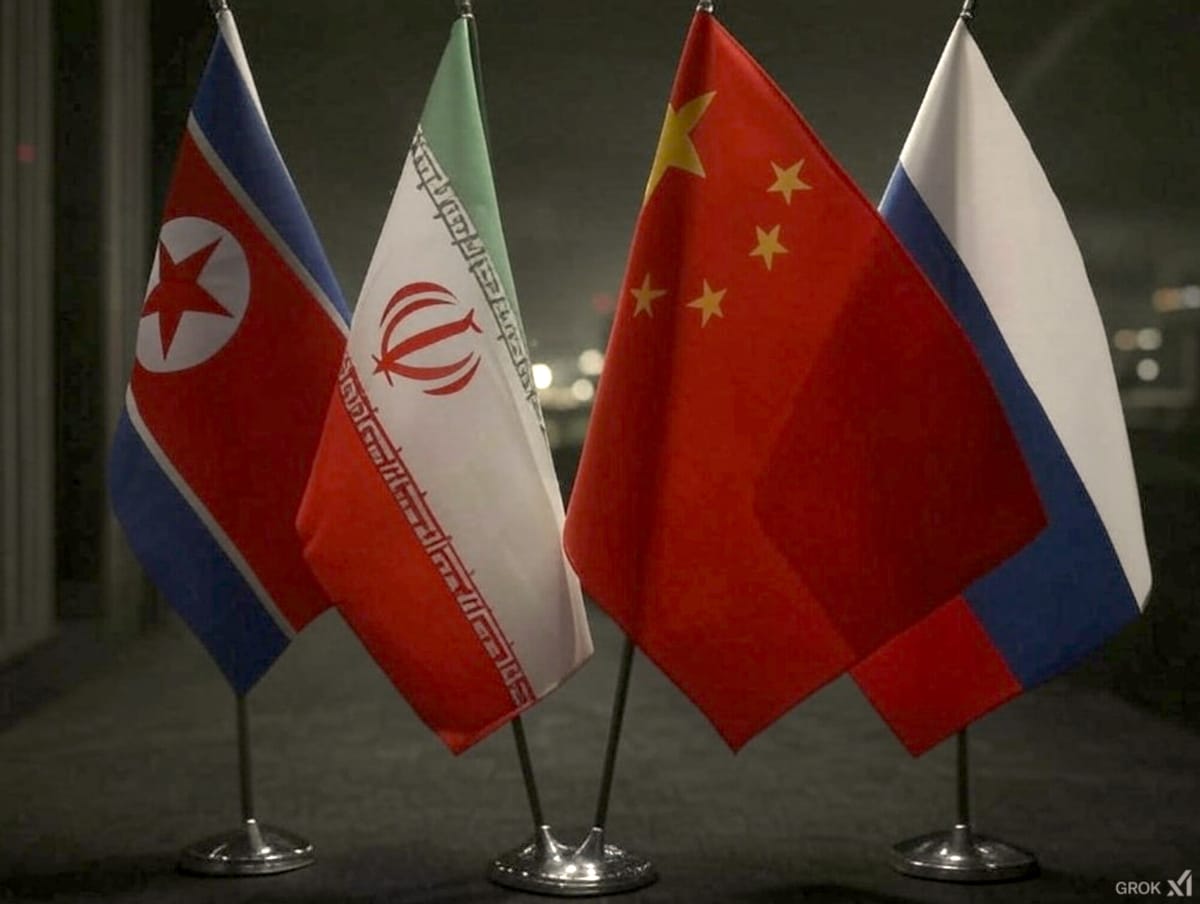The rise of Four Eyes: New coalition could pose "profound" security threat to the West
Ex-CISA chief warns that a quartet of rival nations are forming an axis to rival the Five Eyes alliance.

Iran, China, Russia and North Korea could join forces to form a rival to the Five Eyes alliance - a move with "profound security implications" for the world.
That's the ominous warning from Jen Easterly, a former US intelligence agent and ex-head of the Cybersecurity and Infrastructure Security Agency (CISA).
In a post on LinkedIn, Easterly said the existing Five Eyes Alliance of the US, UK, Canada, Australia and New Zealand has "long been a cornerstone of intelligence-sharing and operational collaboration in safeguarding global security".
Now this established intelligence-sharing group could face a new rival dubbed Four Eyes.
"While the alliance remains strong today, we shouldn't fail to imagine the potential of an equally or more powerful alternative coalition among China, Russia, Iran and North Korea, a development that could have profound security implications," Easterly said.
In the past, the Four Eyes nations have cooperated "to some extent" on military and intelligence matters but were slowed down by differences in language, culture, politics & technological sophistication.
"Shifting geopolitical dynamics, however, could drive these states toward a more formalised intel-sharing partnership," Easterly warned. "Such a 'Four Eyes' alliance would be motivated by common adversaries and strategic interests, including an enhanced capacity to resist economic sanctions and support proxy conflicts."
A new threat to the free world?

A growing axis of cooperation is emerging between the tyrannical quartet as they line up against the nations of the free world. While these nations have not established a formal group like the Five Eyes, their security and military ties are strengthening in ways that could challenge Western strategic interests.
China and Russia have already established a pattern of military collaboration, conducting joint exercises, sharing defence technology, and exchanging intelligence on Western military movements. Russia has also expanded its ties with Iran, working together in Syria’s conflict zones and engaging in drone technology exchanges that have directly impacted battlefields in Ukraine.
North Korea has also entered the fold, supplying weapons and troops to Russia while maintaining missile development partnerships with Iran. At the same time, Beijing continues to deepen its trade and military links with both Iran and North Korea, providing vital economic and strategic lifelines to regimes under Western sanctions.
Together, these four nations form a loose but increasingly cooperative bloc with shared interests in countering US and NATO influence, undermining Western sanctions, and reshaping global power structures in their favour.
READ MORE: CISA's new strategy to mitigate threat of "formidable" Chinese cyber-adversaries
Easterly said that large language models are reducing language barriers between the Four Eyes nations, with advanced neural machine translation systems enabling "seamless communication across intelligence agencies, reducing friction in sharing".
AI-driven data fusion systems could integrate information from Chinese, Russian, Iranian, and North Korean intelligence databases, analyzing and flagging threats. Deep learning-based pattern recognition can also be used to detect US and allied military movements, cyber vulnerabilities, and economic pressure points.
Threat actors across all four nations are also stepping up their game, using automated malware generation and network infiltration techniques.
"In sum, the emergence of an AI-powered Four Eyes intelligence-sharing alliance among China, Russia, Iran, and North Korea could have far-reaching implications for global security," Easterly added. "America must anticipate this shift, enhancing our AI capabilities in intelligence & counterintelligence to maintain our strategic edge. In addition, we must ensure the continued vitality and efficacy of the Five Eyes alliance."
The cybersecurity community responds...

So should we be worried about the rise of a new threat?
Daniel Blanc, from the Canadian Armed Forces Cyber Command, said the West must keep a close eye (no pun intended) on its rivals, but said they have a long way to go to match the level of collaboration found across the Anglosphere.
"The real challenge for them will be the establishment and maintenance of trust," he wrote in a stirring response to Easterly's warning. "The Five Eyes have built that enduring trust over the last century at the diplomatic, security, defence and political level based on a strong and shared belief in the International Rules-Based Order.
"This was cemented and reinforced in our respective nations through having fought, bled and died together side by side in the fields of France in WW1, on the beaches of Normandy, Korea, Afghanistan [and other theatres of conflict].
"That trust from the foxhole to the capitols will be hard to replicate. Let’s hope they fail and that we renew and deepen our Five Eyes defence, security, and intelligence alliance at this critical time in our history."
READ MORE: Ex-CISA chief: Stop calling Chinese hackers silly names and start taking them seriously
Douglas Gray, a former Army senior officer turned cybersecurity leader, called for another nation to be put on the roster of cyber adversaries.
"I wonder if we shouldn't add Cuba to this list?" he asked. "According to open sources, their intelligence services seem to punch above their weight and have no compunction against selling to unsavoury actors."
Threat intelligence analyst Nathaniel W. also offered the following advice: "It is extremely important for allied Cyber Intel sharing to be ahead of adversarial Cyber alliances. I think it is also of great importance to continue the great work of coordinated takedowns as we've seen in 2024.
"Actionable intelligence shouldn't live in a vacuum, and situational awareness between partners helps support agencies and locals with preparedness of emerging threats and trends."
Have you got a story or insights to share? Get in touch and let us know.




